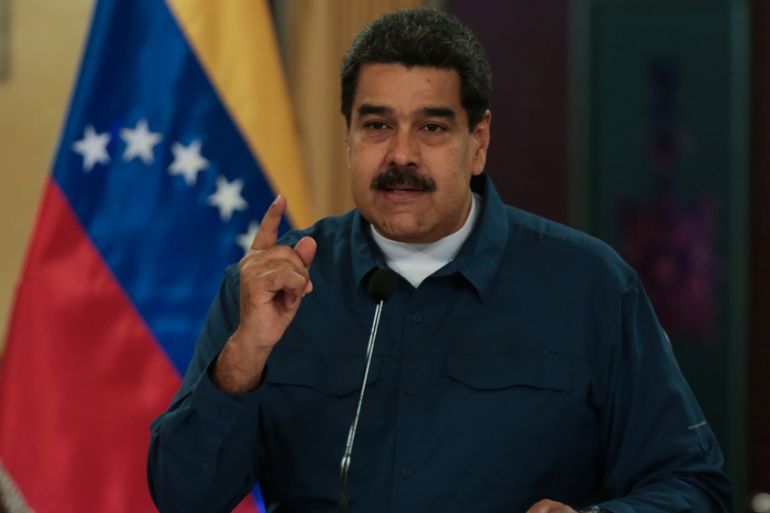Venezuela’s Maduro announces curbs to cheap gas
Venezuelan president says move is necessary to fight smugglers, but many worry it will make fuel unaffordable for most.

Venezuelan President Nicolas Maduro has announced a controversial plan to scrap fuel subsidies in a bid to combat what he calls rampant smuggling.
The government of the economically-ravaged country has for many years heavily subsidised petrol. Prices, where a tank can be filled for as little as $0.01, are among the world’s cheapest.
But under the new plan, only those with a government-provided card will have access to the subsidised fuel. Venezuelans must register their vehicles by Friday using the “carnet de la patria” or fatherland card, which provides access to various forms of government assistance.
Opposition groups have criticised the cards as a means of social and political control. Many who don’t support Maduro have refused to use them.
International rate out of reach
Maduro said the move will help to stop illegal smuggling of fuel into Colombia and other neighbouring countries, which he says costs Venezuela billions each year.
“Anyone who does not respond to the call for this census, who does not wish to participate in the direct subsidy, will have to pay for gasoline at the international rate,” Maduro said on Monday.
It is unclear when the new prices will come into effect, but with runaway inflation, the international rate will be out of reach for most Venezuelans. The average monthly wage is about a dollar, which hardly buys a kilo of chicken, AFP news agency reported.
The move is part of Maduro’s plan to revive the country’s imploding economy, where inflation is expected to reach one million percent this year, according to projections from the International Monetary Fund.
The plan comes as new currency notes with five fewer zeroes come into circulation on Monday, which was made a public holiday to allow people to get used to the new currency.
Old and new notes will coexist for an unspecified period of time.
Venezuela has the world’s largest proven oil reserves and oil exports account for about 95 percent of the country’s export earnings.
When world oil prices dropped sharply in 2014, the Venezuelan economy began to struggle, with hyperinflation exacerbated by the government’s willingness to print extra money.
The currency has fallen 99.99 percent against the dollar on the black market since Maduro came to power in April 2013.
Many Venezuelans are choosing to leave their country where a recession is now entering its fifth year. According to United Nations, an estimated 2.3 million Venezuelans had fled the country as of June, mainly to Colombia, Ecuador, Peru and Brazil.